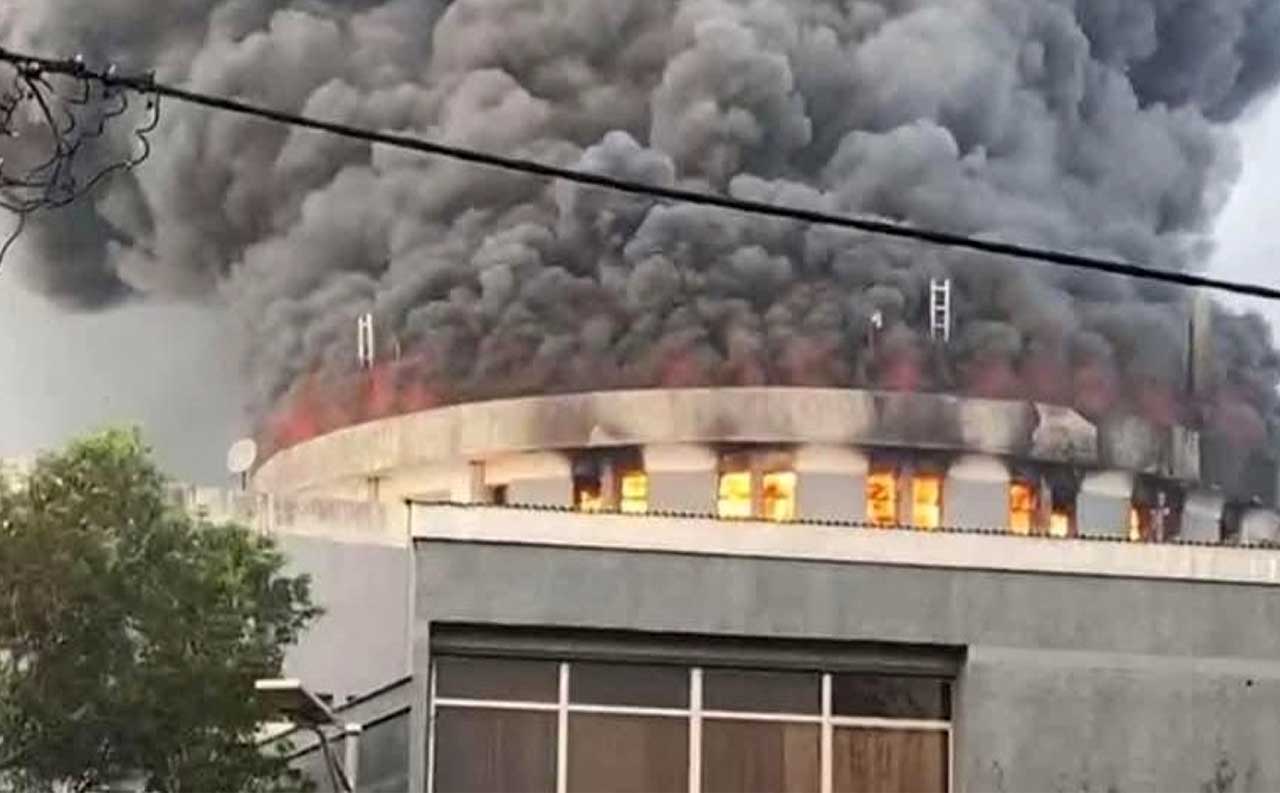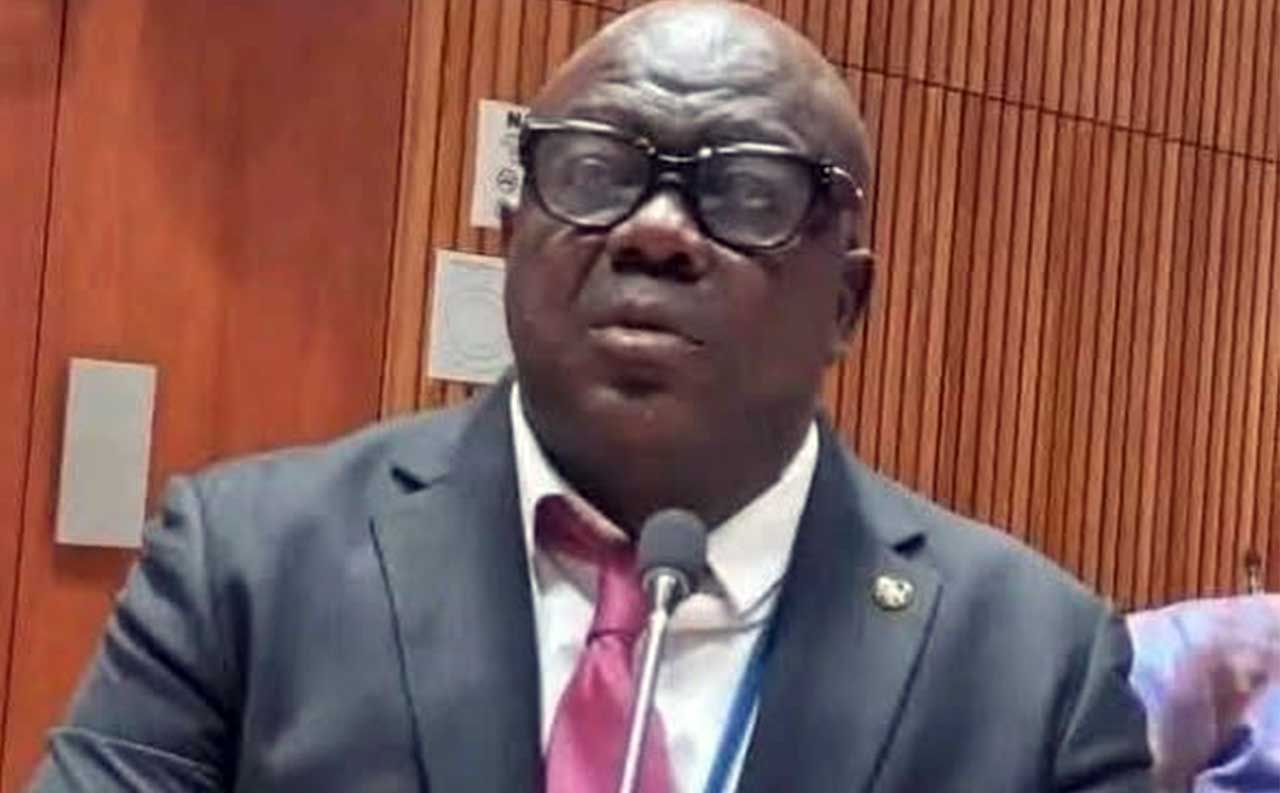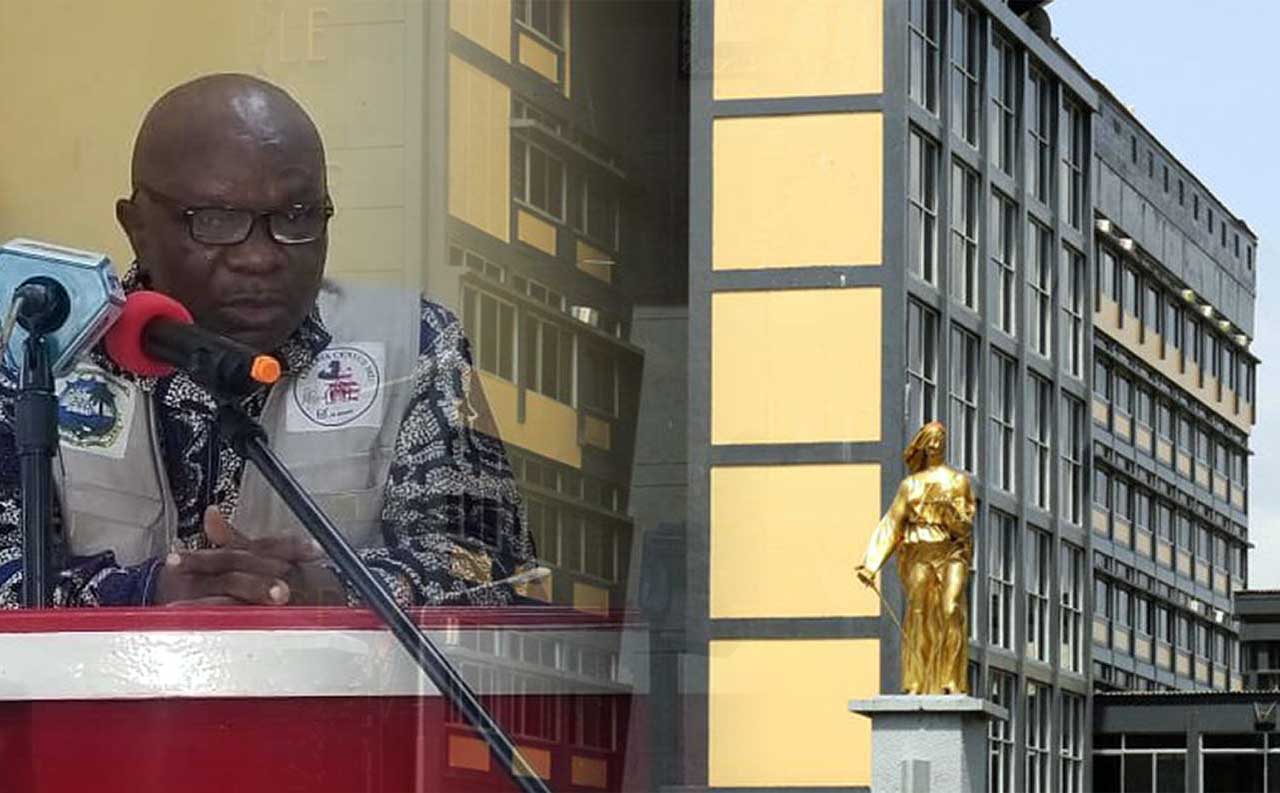Five lawmakers facing trial for an alleged arson attack on the Capitol Building, including former House Speaker J. Fonati, have taken flight to the Supreme Court of Liberia with a Writ of Certiorari seeking a review of the lower court’s earlier decision to deny their motion to suppress evidence.
The Judge of the Criminal Court ‘A’ at the Temple of Justice in Monrovia, Roosevelt Z. Willie, on Wednesday, September 24, 2025, ruled against former Speaker J. Fonati Koffa and several others facing trial for the burning of the Capitol Building, denying their Motion to Suppress Evidence.
Judge Willie’s ruling ordered the evidence to be turned over to the trial jurors for determination based on a medical report that could not clearly determine claims of sodomy made by some of the defendants, which eventually caused the prosecution to cease.
“WHEREFORE AND IN VIEW OF THE FOREGOING, the Court says based on the issues as raised by the defendants, the resistance thereto by the Prosecution, the laws cited herein and the arguments put forth by the Parties, the Motion to Suppress the Evidence is hereby denied and this case is ordered proceeded forthwith,” he adjudged.
However, in a communication to Judge Willie on Thursday, September 25, 2025, the Supreme Court of Liberia revealed a writ of certiorari filed by the defense team, ordering a stay of all proceedings in the case pending a conference with Justice in Chambers Jamesetta H. Wolokolie.
The communication read: “IN RE: J. Fonati Kofa, Dixon W. Seboe, Abu B. Kamara & Jacob C. Debbie, et al of Monrovia, PETITIONERS, VERSUS RL by and thru the Ministry of Justice in the City of Monrovia, County of Montserrado County, Liberia, respondents. By directive of Her Honor Jamesetta H. Wolokolie, Associate Justice presiding in Chambers, you are hereby cited to a conference with Her Honor on Thursday, October 2, 2025, at the hour of 3:00 p.m., in connection with the above captioned case. Meanwhile, you are ordered to stay all further proceedings and/or actions in the matter pending the outcome of the conference.”
Judge Will had ordered the full trial to be assigned for Friday, September 26, 2025, at 10 am prompt. However, with the filing of the writ of certiorari by the defense, the actual commencement of the trial remains uncertain, having already spent months in back-and-forth pre-trial processes.
Judge Willie’s Decision to deny the Motion to suppress evidence was based on a medical report that ruled out sodomy committed against some of the defendants while in pre-trial detention.
“…it is the honest view of this Court that the evidence should be passed unto the Trial Jurors, who are the triers of facts and clothed with the legal authority to determine the genuineness of the allegations as made by the Defendants. Notwithstanding this view, it is also the frank assessment of this Court based on Article 10(1) of the International Covenant on Civil and Political Rights (ICCPR), which says that, “All persons deprived of their liberty shall be treated with humanity and with respect for the inherent dignity of the human person”. Thus, the State is under obligation to ensure that these rights of the Defendants as stated herein above are respected at all times.
Judge Willie ruled on two major reasons based on the medical report, including revocation or voluntary retraction by the defendants of the claim of sodomy during their medical examination, during which time they stated that they were never sexually abused, and no medical examination should be done on their genitals and anuses.
The Judge said this presupposes that although they had informed the court that the evidence should be suppressed because they were sodomized, this information is imaginary, as insinuated by them during their medical examination.
Secondly, Judge Willie mentioned that the admission of the physician in his report, when he acknowledged that the medical examination encountered certain “limitations and constraints, including the passage of time between the alleged incidents and the examinations, which may have obscured or altered physical findings.
Also, stating the report, Judge Willie named the patient’s revocations of consent for specific examinations (notably genital and anal assessments), and the inherent limitations of available diagnostic modalities within present setting; as such, the report then concludes that despite these constraints, the physician endeavored to provide a thorough, impartial and professionally grounded account of the clinical evidence before them.
“We hasten to note that Dr. Philip Zochonis Ireland provided photographic account of some of the Defendants having scar wounds and some illnesses on their body but further stated that, even though the Defendants overall assessment was consistent with the allegation, however, these findings could also be caused by other conditions other than torture; So, in addition to his admission that his findings were hampered by the passage of time between the alleged incidents and the examination, which may have obscured or altered physical findings, and also the inherent limitations of available diagnostic modalities within our present setting, also contribute to the fact that the report has some constraints,” the judge ruled.
According to the court, the defendants had not proven that the evidence gathered from them were obtained by means of sodomization and torture, since under the law, as contained in the case opined by the Supreme Court of Liberia: Shaheen v Occidentale, 13 LLR, page 278, syllabi 4 and 5, respectively, state that, 4: “An answer which both denies and avoids is dismissible for inconsistencies”, and 5: “Where an answer both denies and avoids, the defendant will be ruled to a general denial of the allegations contained in the complaint”.
Recently, a medical report issued by A.M.I. Clinic under the Istanbul Protocol left room for further questions as it presents unclear findings regarding the full extent of alleged torture endured by Thomas Etheridge and others while in state custody.



